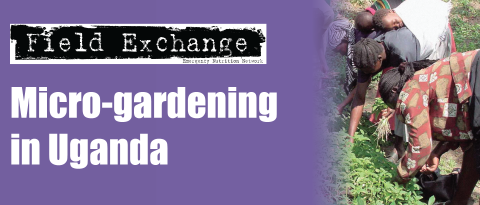Dependency and Humanitarian Relief
Summary of research report1
In many emergency contexts, aid agencies hesitate to provide food and other aid for extended periods because of fears that this may create 'dependency'. A newly published HPG research report explores what 'dependency' means in a humanitarian context, how the term is used and the implications this has for how relief is provided.
The paper sets out how dependency is:
- generally seen as negative and to be avoided
- associated with the provision of relief, and contrasted with development approaches
- seen as undermining people's initiative
- contrasted with a variety of positive values or terms, notably independence, self-suffi - ciency, self-reliance and sustainability, and
- seen as a particular problem when relief assistance has been provided over a prolonged period.
According to the report authors, there are four main ways in which the term is used:
- Relief risks creating a 'dependency mentality' or 'dependency syndrome' in which people expect continued assistance. This undermines initiative, at individual or community levels.
- Relief undermines local economies, creating a continuing need for relief assistance and trapping people in chronic dependency on outside assistance.
- Dependence on external assistance is viewed as one of the features of extreme poverty, associated with a sense of shame or defeat.
- Dependency on relief resources on the part of governments - at local or national levels, warring parties or aid agencies.
The research report draws a number of important conclusions;
People depend less on relief than is often assumed. There is little evidence that relief undermines initiative, or that its delivery is reliable or transparent enough for people to depend on it. In practice, many concerns about dependency seem to stem from a preoccupation with the disincentive effects of food aid. Framing these real concerns in terms of dependency is unhelpful because this can provide an excuse for cutting back relief for people who may still be in desperate need. The more important question is what forms of assistance are most appropriate to prevent hunger, save lives and alleviate suffering. In situations where people's lives and livelihoods are under acute threat, and local capacities to cope with crisis are overwhelmed, being able to depend on receiving assistance should be seen as a good thing. The focus should be not on how to avoid dependency, but how to provide sufficiently reliable and transparent assistance so that those who most need it understand what they are entitled to, and can rely on it as part of their own efforts to survive and recover from crisis.
Discourses around dependency often blame the symptom, rather than the cause. Relief aid has often been the most visible, if not the only, form of international engagement in long-running crises. In these contexts, there is a tendency to criticise relief for failing to improve the situation, and enabling a movement towards recovery or development. Yet humanitarian aid may be a wholly inappropriate instrument for that purpose. The problem lies not with relief and its failings, but with the lack of other forms of international engagement with crises.
Relief should not be withheld without solid evidence that the needs which prompted it in the first place have been met. This is not to imply that agencies should ignore the potentially negative effects of aid, but it does suggest a need for caution about how the label 'dependency' is applied, and how it is used to justify reductions in relief.
1Harvey P and Lind. J (2005). Dependency and humanitarian relief. A critical analysis. HPG Research Report No 19, July 2005
Imported from FEX website


